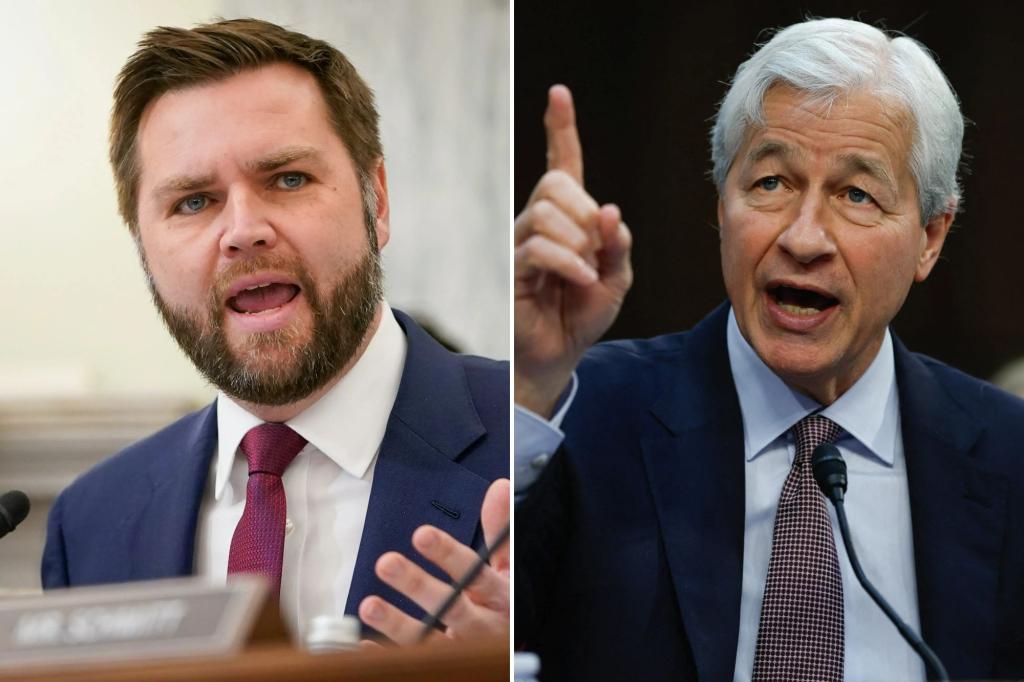J.D. Vance not only shook up the presidential election, he shook up Wall Street and possibly Silicon Valley.
With polls showing the likelihood of a Trump presidency growing, sources told On the Money that just hours after the Ohio senator was selected as Trump's running mate, analysts began holding conference calls with clients, including big investors and large corporations, to discuss how a Trump pick would impact policy.
First, Vance's reputation as a firebrand populist, combined with his intellectual ability and knowledge of economic policy and finance, has led many Wall Street executives to believe he will have a say in President Trump's economic policy.
One source, a lawyer at a major Washington, DC-based law firm, said this isn't just a trade war. Trump will try to curb the power of big tech companies. A Trump-Vance FCC would rethink Section 230 of the Communications Decency Act, the legal protection that allows all social media to operate without fear of liability for the content they publish.
Losing that shield could be a devastating blow even to companies like Facebook and Twitter. Vance could lead efforts to use FCC regulation to weaken parts of the shield, something discussed during the final years of Trump's first term, when Twitter suppressed and in some cases banned conservative speech.
Of course, that was before Elon owned Twitter and then jumped on the Trump train, so it's unclear how much the new Trump-Vance Republican Party will want to contend with a platform now open to MAGA voices, but there's still a chance if they make it to the White House.
Vance also has some strangely kind words for Lina Khan, Biden's left-leaning Federal Trade Commission chairwoman and thorn in the side of conservative economic commentators. She made her name as an Ivy League scholar speaking out about the harms of online retailer Amazon's monopoly power. She feels the same about Google, and would break up both companies on antitrust grounds if she wanted to (she's suing both companies).
I don't know if Vance wants to go that far, but that's another factor to consider if he's elected.
Vance has been averse to corporations getting tax cuts, even as President Trump is now pushing for new corporate tax cuts, which is why another former Trump White House legal official told me he might go for low-hanging populist wins targeting the private equity industry.
He said Vance might also eliminate the firm's cherished tax loophole, the so-called carried interest deduction, which allows managers at PE firms to pay a lower tax rate on money they make in portfolio companies than on their ordinary income.
The private equity lobby resisted efforts to eliminate the program even during the Trump administration, arguing it would have a negative overall impact on the economy, a persuasive but nonetheless highly controversial program. Without the perk, private equity firms would not invest in companies taken private or try to fix companies that can take years to fix.
Vance hasn't said much about the carried interest controversy, and there's probably good reason for that: While he likely made a lot of money exploiting loopholes in his time as a venture capitalist, he was a Reagan Republican, not a MAGA Republican.
“It will be easy for him to gain the support of populists on both the left and right who think carried interest is unfair and pressure him to abolish it,” my legal source said.
Others aren't so convinced. One PE government relations executive says he's not worried. “JD has more work to do,” he says. And one big one is energy policy. My sources say Vance wants to do more drilling and will certainly lobby for a Biden administration to significantly scale back green energy policies. If he has his way, the EV tax credit could also be repealed.
And he hates corporate wokeness: At a Senate Banking Committee hearing in December, he blasted the heads of big banks, including JPMorgan's Jamie Dimon and Bank of America's Brian Moynihan, for meddling in the political debate to tout progressive causes on the environment, guns and abortion, as well as their support for environmental social governance investments, which have led to a decline in drilling and higher gas prices for average Americans.
“Stay away from public policy unless it affects your core business interests. If you don't, it makes it very hard for us to view you as neutral arbiters, neutral actors in the American financial system. It makes it much easier to view you as political actors,” Vance told the Wall Street executives.
Before the banking lobby starts attacking him, consider this: The Vance effect isn't necessarily a bad thing for Wall Street. After all, a Trump-Vance administration would be much better for Wall Street M&A, which will be so riddled with regulatory failures under a Biden administration that few deals get done.
Get your popcorn ready, because if elected, Trump II with Vance as his aide will be an interesting one.

